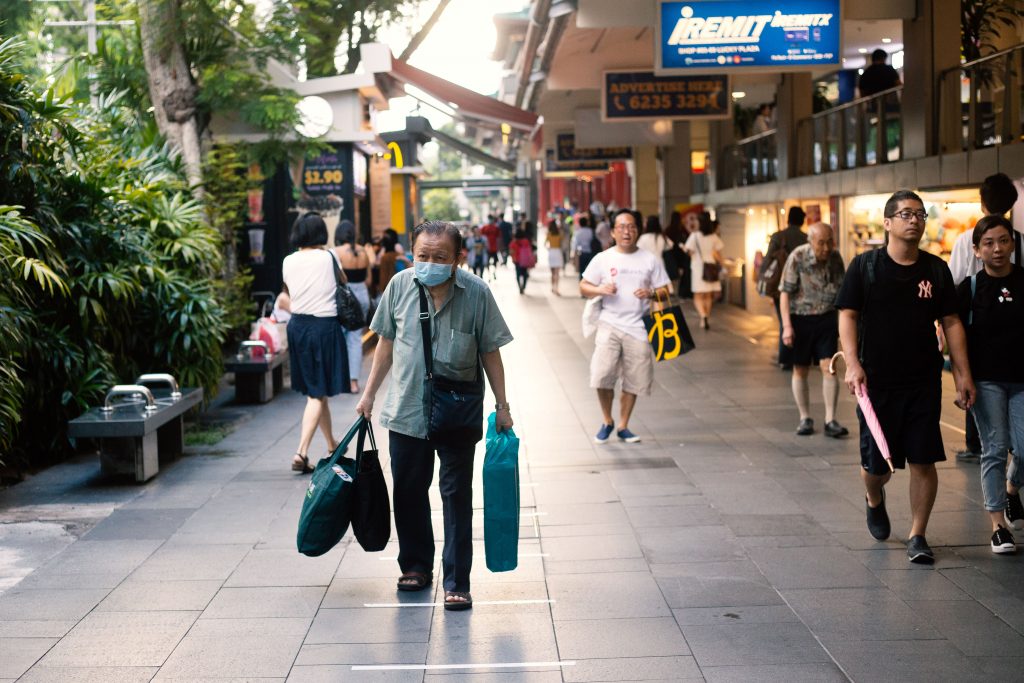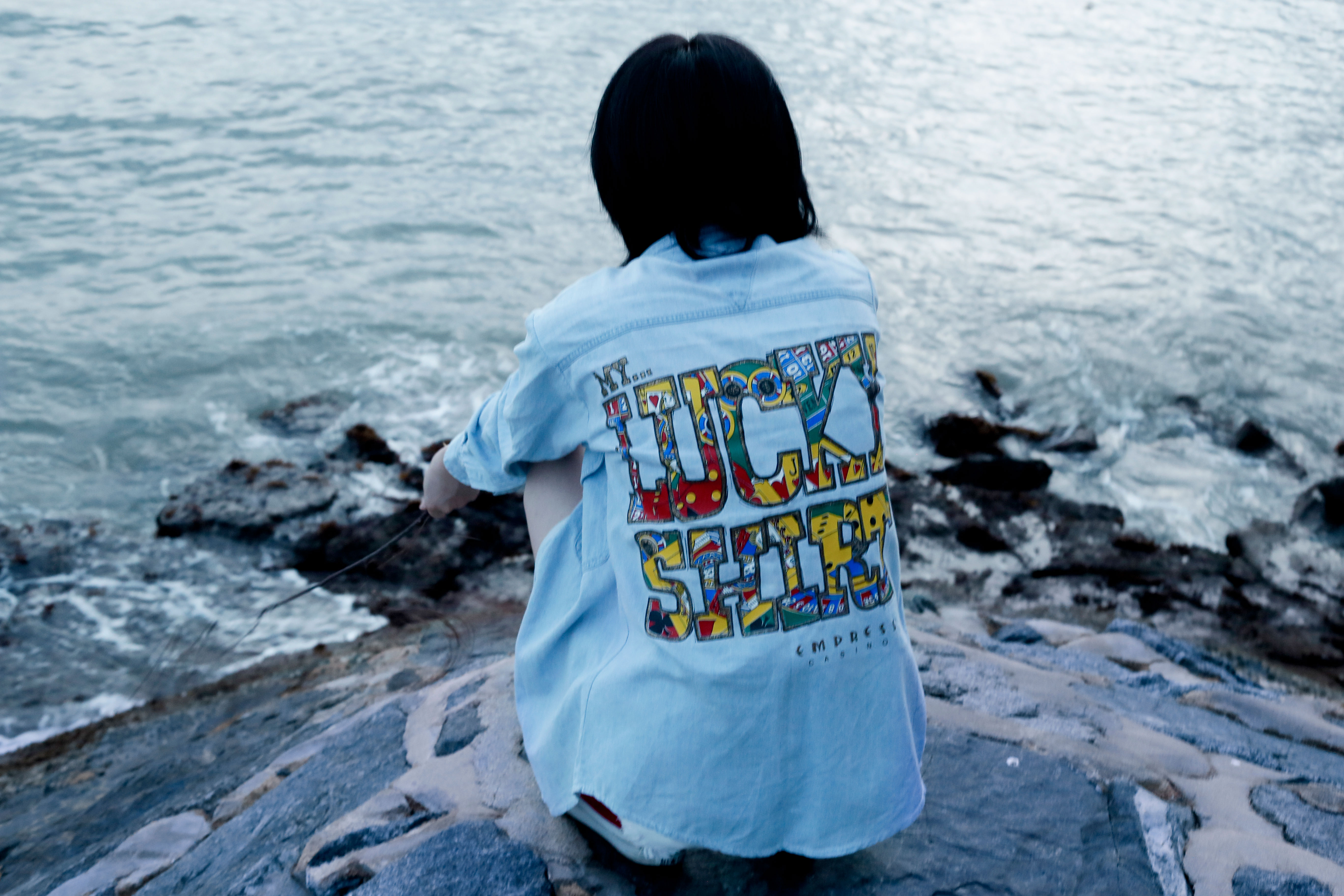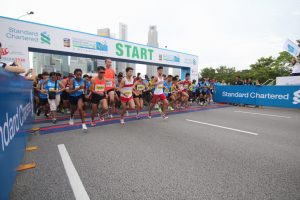It’s hard to imagine, but less than a hundred years ago, my grandfather, like many Chinese immigrants of that era, set off on a boat from Hainan Island to another island with thousands of miles of oceans in between.
He was twelve.
His destination was Singapore – the city we call home today.
On one hand, it seemed like a no brainer. Mainland China was not a great place to be in the early 20th century. Civil war, famine, disease were some serious push factors.
On the other hand, it must have also been daunting. Singapore had already developed beyond a fishing village but in an era without LinkedIn or TripAdvisor – he made the journey with no promise of employment nor knowing whether or not he would ever return (he never did).
Eventually, he weighed his options with all the knowledge and resources available to him, and packed his belongings in one of those cloth bags. Then he took the plunge and hoped for the best.
Scary stuff.

Yet, it gets grimmer – COVID-19 has brought about the worst recession since independence, and we ain’t seen nothing yet.
We might not be on a boat drifting in the South China Sea, but Singapore is still a tiny sampan, affected by global tides.
Some of our friends have already been let go by their companies. Thousands more will follow. Yet more will be struggling with pay cuts and the reality of career stagnation for the foreseeable future.
And we’re not even talking about those who will have job offers put on hold – these are real career dreams, put on limbo indefinitely.

We try to answer hundreds of questions posed by youth understandably concerned about their finances and career progression.
Without sugarcoating, it is safe to say that plenty are feeling pessimistic about their chances in life. They feel that the odds are so stacked against them, that the best course of action is to simply not try. I would know – I too used to feel this way too.
Yet before anyone dismisses their sentiments as a sign of ‘mental weakness’, the challenges they face today are by no means less daunting than what previous generations have faced.
Our parents and teachers raised us for a corporate world that no longer exists. The internet has brought us great knowledge, yes – but it has also brought us global competitors who can provide services at a fraction of the cost.
Artificial intelligence threatens even the most sacred of our jobs. I guess a bright spot is that unemployment now discriminates a little less – these days, it doesn’t care how old you are.
Others also face the financial and emotional burden of looking after aged parents who gave up everything to raise them, not planning their own retirement in the process.
Add growing inequality to the mix, and you have a perfect recipe for disillusionment.

We often lionise the Pioneer Generation as fearless, daring, with a never-say-die spirit. We sing their praises and describe them as diligent, tireless workers who overcame everything that life threw at them. Strong and silent people who humbly pursued excellence for the greater good of the country.
As a content writer, I completely get it. That makes for great storytelling. But in times like this, it’s important to be real. Let’s separate rhetoric from the truth.
No one is like that 100% of the time. Ever.
Knowing my grandfather – a timid, mild-mannered man – he most likely didn’t leap onto that boat without hesitation. He would have felt fear and cursed his circumstances – much like how many young ones are doing today.
He would have shed tears as he watched his hometown fade on the horizon. And I can say with little doubt that there must have been days he felt utterly hopeless.
What truly mattered though, was what he did after.
He might have arrived in Singapore as a coolie, but he took on an apprenticeship for less pay to learn the technical skills for carpentry.
Then he snuck back to primary school to learn English, so he could be a waiter. There, he picked up people management skills that would save his life; during the Japanese Occupation, he endured insults and swallowed his pride to work in a POW camp (and occasionally ate the odd sweet potato).
Towards the end, he even had a short stint as a business owner – a small provision shop that shuttered after a few years. Amazingly, he learnt to do all this without spending a single SkillsFuture credit.
COVID-19 is no exception.
Perhaps that is why I am starting to see a slow but steady mindset shift in many of the youth who reach out to us.
This year alone, I have been humbled by many conversations, each reminding me that there’s always something to learn. Even from people a decade younger than you.
Of course, there are those who would have you believe our generation is one that is sheltered, entitled and would crumble at the first hint of hardship.

Or understood the hours otherwise ordinary youth are willing to put in to end the curse of the sandwich generation.
No less inspiring are the ones who after a session of painful self-reflection, have committed their time to learning skills to plug the holes in their CVs–data science bootcamps, distance learning, short courses on Coursera, you name it.
Make no mistake: These are individuals who have awakened to the fact that in life, we cannot change the cards we are dealt, but we can choose how we play the game.
Of course in 2020, the game is different. Pre-COVID, the world was already starting to close its doors to globalisation.
Post-COVID, nobody can truly know. It would be foolish to underestimate the turmoil and the hardship that lies ahead.
That’s why for those of us who will be bearing the full brunt of the recession in the next few months, it is important to vent and release; to rest and heal.
I cannot understate the importance of mental health – the mind is a powerful thing when it is on your side, a terrible one when it is not.
Don’t give up. Know that you are stronger than you think you are. Pursue new opportunities; reinvent and innovate.
But what is equally important, is to recognise that you’re not alone. And that in every era, the future has always belonged to the people who embrace reality and make moves – even if sometimes all they have is a little boat.
So lick your wounds. Dry your tears. Then get back on your feet.
And let’s get moving.






